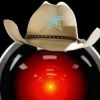10 R Programming Language Books That Separate Experts from Amateurs
Curated by Kirk Borne, Computer Cowboy, and Tim @Realscientists—unlock practical insights with these R Programming Language Books
Create a R Programming Language course with AI
Generate a personalized AI-powered course, tailored to your goals and topics of interest
What if you could cut through the noise and pick just the right R programming books to boost your skills effectively? R remains a top choice for data scientists and statisticians worldwide, but with so many resources, deciding where to start or advance can feel overwhelming. That's exactly why these ten books, selected by leading professionals, stand out—they offer not just theory but practical approaches that resonate with real-world challenges.
Take Kirk Borne, a principal data scientist at Booz Allen, who highlights "R for Everyone" for its ability to bridge foundational concepts with advanced analytics, making it invaluable in his work with complex datasets. Meanwhile, Computer Cowboy, an open source contributor, reveres "An Introduction to Statistical Learning" for its practical labs that demystify statistical methods in R, proving essential for applied data science. And then there's Tim @Realscientists, a staff scientist and science communicator, who recommends "R for Data Science" for its hands-on approach, helping beginners grasp data manipulation and visualization with confidence.
While these expert-curated books provide proven frameworks, readers seeking content tailored to their specific experience levels, industries, or learning goals might consider creating a personalized R Programming Language book that builds on these insights. Tailored guidance can accelerate your learning journey, focusing on the aspects that matter most to you.
Recommended by Tim @Realscientists
Staff Scientist and science communicator
“If you are interested in learning programming, there are lots of great tutorials. For data analysis, R and the R 4 data science book is a great way to go and for general R syntax, there is the swirl learning package /20” (from X)
What started as Hadley Wickham's effort to simplify data science workflows has evolved into a practical guide that demystifies using R and the tidyverse for data manipulation and visualization. You’ll gain hands-on skills importing diverse data sources, transforming datasets, and crafting insightful visualizations, all while understanding the broader data science cycle. For example, chapters on integrating prose, code, and results with Quarto offer a nuanced approach to communicating findings. This book suits aspiring data scientists and analysts eager to get productive quickly without wading through unnecessary theory.
Recommended by PsycCRITIQUES
“Writing for real people with real data. From the very first chapter, the engaging writing style will get readers excited about this topic” (from Amazon)
Drawing from his extensive background as a professor of psychological and brain sciences and statistics, John Kruschke developed this book to offer a clear, accessible approach to Bayesian data analysis. He walks you through foundational concepts like models, probability, and Bayes’ rule before advancing to practical applications using R, JAGS, and Stan, including generalized linear models and experiment planning. The text features concrete examples and purposeful exercises that guide you in implementing Bayesian methods yourself, making it especially useful if you want to replace traditional frequentist statistics with Bayesian approaches. This book suits graduate students and professionals in statistics, psychology, and social sciences eager to deepen their data analysis skills with hands-on programming guidance.
This tailored book explores the path to mastering R programming in a way that matches your unique background and goals. It covers fundamental concepts, advanced programming techniques, and specialized topics chosen to align with your interests. By focusing on your specific learning needs, it reveals efficient ways to build expertise, from data manipulation to statistical modeling and visualization. The personalized content helps you navigate complex material thoughtfully, highlighting practical applications and insights that resonate with your experience level. This approach enables a deeper, more relevant understanding of R programming concepts, paving your way to expert proficiency with clarity and confidence.
Drawing from his extensive background as a software engineer at RStudio and his PhD research in statistics, Yihui Xie developed this book to unlock the full potential of R Markdown for users at all levels. You’ll learn how to enhance documents with diagrams, citations, and dynamic text, as well as streamline workflows using child documents and caching techniques. The book dives into controlling formatting via Pandoc markdown and custom templates, and even guides you on integrating Python and D3 seamlessly into your analyses. Whether you’re just starting or looking to deepen your R Markdown skills, this resource offers practical, example-driven insights that sharpen your data presentation and reproducible research capabilities.
Recommended by Kirk Borne
Principal Data Scientist at Booz Allen
“Must see the brilliant book "R for Everyone: Advanced Analytics and Graphics" at by @jaredlander ——— ➕Check out the R Conference (in Washington DC): by @rstatsdc ——— #BigData #DataScience #Rstats #Statistics #Coding #DataScientists” (from X)
While working as a statistical consultant and adjunct professor, Jared Lander noticed many aspiring data scientists struggling with R's steep learning curve. This book unpacks the essential 20 percent of R functionalities that cover 80 percent of practical data tasks, making it approachable without sacrificing depth. You’ll learn everything from installing R and data manipulation to building linear and nonlinear models, exploring data mining techniques, and crafting clear statistical graphics. Chapters like those on model quality assessment and advanced programming concepts equip you to handle real-world analytics confidently. If you want a guide that bridges foundational skills with advanced analytics in R, this book has the structured clarity you need.
Recommended by Computer Cowboy
Open source contributor and data economist
“This is awesome! Here is the Introduction to Statistical Learning book: And the Deep Learning lab (chapter 10) in Torch in R: The book (and accompanying exercises) is a *great* resource” (from X)
Gareth James and his co-authors offer a clear, approachable guide to statistical learning that bridges theory with practical application in R. You’ll find detailed explanations of essential methods like linear regression, classification, and deep learning, all illustrated with real-world datasets from diverse fields such as biology and finance. The book’s chapters include R tutorials, enabling you to implement these techniques directly, even if your math background is limited to linear regression. Whether you’re a statistician or a professional from another discipline eager to harness modern data analysis tools, this text equips you with a solid foundation and practical skills to analyze complex data effectively.
This tailored book explores a focused 30-day journey to elevate your R programming skills through carefully designed daily lessons. It covers foundational R concepts, practical coding exercises, and progressively advanced topics that match your background and interests. By concentrating on step-by-step actions, it helps you gain confidence quickly while addressing the areas you want to master. The tailored content reveals how to navigate R’s syntax, data manipulation, visualization, and basic modeling with clarity and purpose. This personalized approach ensures you engage deeply with material relevant to your goals, making your learning process efficient and enjoyable.
Recommended by Levi John Wolf
Editor, Urban Analytics journal
“The pedagogical materials are exceptionally useful, and will certainly be worth the investment of time, effort, and money for students and scholars alike. Brunsdon and Comber’s Introduction to R for Spatial Analysis and Mapping stands out as one of the best and most current foundations for spatial analysis with R for teaching and instruction.” (from Amazon)
Chris Brunsdon, a professor deeply rooted in geocomputation and spatial statistics, brings his extensive experience with R to this focused guide on spatial analysis and mapping. You’ll navigate from basic coding to applying specialized R packages for geographic data, including crime patterns and land use, gaining skills in geocomputation and spatial statistics. The book’s chapters offer embedded code and exercises, making it ideal if you want to move beyond traditional GIS software toward reproducible, open-source methods tailored for spatial data. If you’re a student or researcher handling location-based datasets, this text offers a straightforward pathway to mastering R’s spatial capabilities, though it’s best suited for those ready to engage with coding.
Recommended by Kirk Borne
Principal Data Scientist at BoozAllen, PhD Astrophysicist
“Love this!! —> "The Book of R: A First Course in Programming & Statistics" 🌟830-page complete book of R coding fundamentals 🌟” (from X)
Tilman M. Davies, a senior lecturer in statistics with 15 years of R programming experience, wrote this book to guide beginners into the world of statistical computing with R. You’ll learn foundational programming concepts like data frames, functions, and loops, progressing to statistical analysis methods such as hypothesis testing and regression modeling, all implemented in R. The book also covers creating data visualizations using popular packages like ggplot2 and rgl, supported by hands-on exercises that reinforce practical skills. If you’re new to programming but eager to harness R’s power for data analysis, this book provides a clear path without assuming prior coding knowledge.
Drawing from their extensive backgrounds in robotics and computer science, Nina Zumel and John Mount crafted this book to bridge the gap between theory and practical application in data science using R. You’ll explore how to handle real business data, apply statistical methods for prediction, and create clear visualizations that communicate insights effectively. Chapters on marketing analytics and decision support show you how to translate complex models into actionable information. This book suits those comfortable with basic statistics and some programming, aiming to deepen their ability to analyze data and present it convincingly in a business context.
Hadley Wickham's Advanced R offers an in-depth look at the inner workings of the R language, crafted for those ready to move beyond basics. The book meticulously unpacks core concepts like the distinction between objects and names, vector data structures, and the nuances of functions and environments. You’ll also explore three programming paradigms—functional, object-oriented, and metaprogramming—equipping you to write more efficient and elegant R code. Chapters on debugging and optimization provide practical tools to improve your coding workflow. This book suits programmers familiar with R or other languages who want to truly understand what makes R unique and powerful.
What started as a need to bridge statistics and hands-on programming became Rafael A. Irizarry's guide to data science with R. This book walks you through key concepts like probability, linear regression, and machine learning, while teaching you practical skills such as data wrangling, visualization, and predictive modeling using R. Its structure, divided into thematic parts and motivated by real-world case studies like election forecasting and health trends, means you learn by doing, not just reading theory. If you're ready to build a solid foundation in both data science principles and R programming, this book offers a clear path—though those without any programming background might find some sections challenging.
Conclusion
These ten books collectively reveal the rich landscape of R programming—from foundational coding and statistical learning to specialized fields like Bayesian analysis and spatial mapping. If you're just starting out, "The Book of R" provides a gentle yet thorough introduction to programming and statistics. For those eager to dive into applied data science, "Practical Data Science with R" and "R for Data Science" offer actionable, real-world strategies.
If your focus is sharpening your statistical modeling or Bayesian inference skills, "An Introduction to Statistical Learning" and "Doing Bayesian Data Analysis" stand ready with clear explanations and practical examples. Meanwhile, advanced programmers will find "Advanced R" indispensable for mastering R's inner workings and programming paradigms. Spatial analysts and researchers can deepen their expertise with "An Introduction to R for Spatial Analysis and Mapping," which bridges geographic data challenges with R’s capabilities.
Alternatively, you can create a personalized R Programming Language book to bridge the gap between general principles and your specific situation. These books can help you accelerate your learning journey, whether you're aiming to master core concepts or tackle specialized R projects.
Frequently Asked Questions
I'm overwhelmed by choice – which book should I start with?
Start with "R for Data Science" if you're new to R and want practical skills fast. It offers hands-on learning without too much theory, perfect for beginners eager to work with data quickly.
Are these books too advanced for someone new to R Programming Language?
Not at all. Books like "The Book of R" and "R for Everyone" specifically cater to novices, gradually building your skills while others like "Advanced R" target experienced users.
What's the best order to read these books?
Begin with introductory titles such as "The Book of R" or "R for Data Science," then explore specialized topics like Bayesian analysis or spatial data, and finally tackle advanced programming with "Advanced R."
Do I really need to read all of these, or can I just pick one?
You can pick based on your goals. For broad data science, "R for Data Science" is great. If you need statistical depth, choose "An Introduction to Statistical Learning." Each book serves different needs.
Which books focus more on theory vs. practical application?
"Doing Bayesian Data Analysis" leans theoretical but includes coding examples, while "Practical Data Science with R" emphasizes applied techniques grounded in business scenarios.
How can I get R programming insights tailored to my specific goals and background?
Great question! While these expert books offer solid foundations, creating a personalized R Programming Language book lets you focus on your unique interests and skill level. Check out this personalized book option to get tailored guidance that complements expert knowledge.
Help fellow book lovers discover great books, share this curated list with others!
Related Articles You May Like
Explore more curated book recommendations














